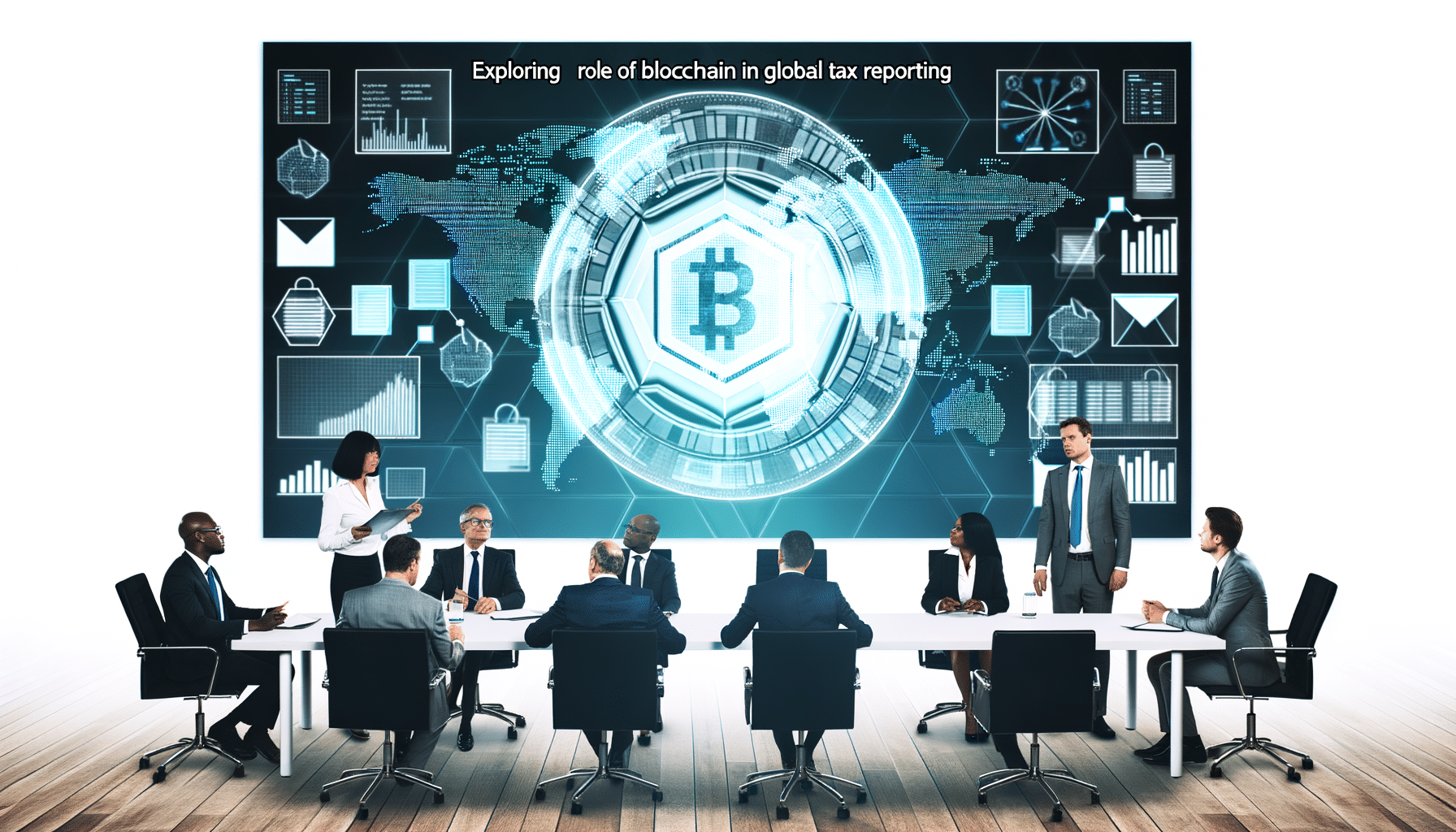- Taxation
- March 4, 2023
Exploring the Role of Blockchain in Global Tax Reporting

Understanding Global Tax Reporting through Blockchain Innovation
As businesses operate across borders, the intricacies of tax reporting become more complex. In an increasingly interconnected world, the need for accurate and efficient tax reporting mechanisms has never been more crucial. Blockchain is emerging as a pivotal technology that not only addresses these complexities but also enhances global compliance.
The Challenge of Global Tax Reporting
Tax jurisdictions worldwide impose varied requirements on enterprises, demanding transparency and accountability. The conventional methods of handling these requirements often result in inefficiencies and errors. As someone deeply involved in cutting-edge technologies, I’ve seen firsthand how businesses struggle with these cumbersome processes.
Traditional tax systems are fraught with pain points:
The introduction of blockchain technology offers a promising alternative, poised to transform these outdated systems.
Blockchain: The Game-Changer
Blockchain’s structure—a distributed ledger—serves as a transparent, secure, and immutable record. This transparency is essential for verifying transactions and ensuring compliance in tax reporting. Here’s how blockchain addresses the pain points of traditional tax systems:
A Practical Illustration: Blockchain in Action
Imagine a multinational corporation juggling tax obligations across various countries. Each jurisdiction requires a different set of documentation, calculations, and reporting. The splendid feature of blockchain is its ability to integrate seamlessly into this complex network.
With blockchain, the corporation can maintain a single version of the truth—accessible to all relevant parties. Any updates or changes in tax regulations can be swiftly reflected across all jurisdictions. This single-source clarity avoids duplicative paperwork, ensuring everyone is working with the most recent data.
Additionally, the automated nature of blockchain can handle repetitive tasks such as VAT reconciliation or transfer pricing, allowing businesses to free up resources and concentrate on strategic growth.
Compliance Made Easy with Blockchain
Global compliance remains one of the most daunting aspects of tax reporting. Blockchain not only streamlines data sharing but also fortifies security—an essential component when dealing with sensitive financial information.
Blockchain systems ensure data integrity, using cryptographic techniques for protection and making records tamper-proof. This security framework alleviates concerns about data breaches and unauthorized alterations, all while enabling auditors to verify data easily.
Through automated trails and immutable records, blockchain-based systems offer unparalleled transparency, granting regulators easy access to pertinent data for audits without unnecessary bureaucracy.
Blockchain’s Impact on the Global Scale
The appeal of blockchain in the sphere of global tax reporting is not confined to individual businesses or countries; it holds transformative potential on a global scale. As more jurisdictions look into adopting blockchain, standardization of tax reporting systems becomes achievable, fostering a more cohesive international business environment.
This technology can harmonize efforts between countries, paving the way for a standardized global tax reporting framework that ensures compliance while easing the burden on entities big and small.
Embracing Blockchain for the Future
The move towards automation and technological integration in record management isn’t just beneficial but essential. By incorporating blockchain into global tax reporting systems, we create an ecosystem that is reliable, transparent, and efficient.
Having built RecordsKeeper.AI on these same principles, it’s clear to me that blockchain has the power to revolutionize sectors far beyond tax compliance. As we navigate through the wave of digital transformation, embracing these technologies will undoubtedly place businesses at the forefront of innovation.
For legal, financial, and compliance heads considering how to improve their operations, understanding how blockchain integrates with and simplifies tax reporting is a first step toward embracing a futuristic, frictionless world.
Let’s continue the dialogue—explore how blockchain can solve your compliance challenges, and feel free to reach out to discuss how RecordsKeeper.AI can support your journey to modernized record management. Connect with me on this transformative journey, and let’s discover new horizons together.
Toshendra Sharma is the visionary founder and CEO of RecordsKeeper.AI, spearheading the fusion of AI and blockchain to redefine enterprise record management. With a groundbreaking approach to solving complex business challenges, Toshendra combines deep expertise in blockchain and artificial intelligence with an acute understanding of enterprise compliance and security needs.
Related Posts

The Impact of Blockchain on Tax Record Management
Learn how blockchain simplifies and secures tax record management.
- February 1, 2023
Archives
- January 2025
- December 2024
- November 2024
- October 2024
- September 2024
- August 2024
- July 2024
- June 2024
- May 2024
- April 2024
- March 2024
- February 2024
- January 2024
- December 2023
- November 2023
- October 2023
- September 2023
- August 2023
- July 2023
- June 2023
- May 2023
- April 2023
- March 2023
- February 2023
- January 2023
- December 2022
- November 2022
- October 2022
- September 2022
Want to get more content like this?
Signup to directly get this type of content to your inbox!!
Latest Post
Document Control for Equipment Maintenance
- January 20, 2025
Managing Records for Multiple Clients
- January 19, 2025
Handling Conference Documentation
- January 18, 2025
Setting Up Department Record Reviews
- January 17, 2025





